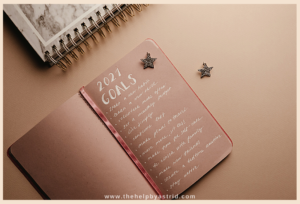
Happy new year everyone! We hope you had peaceful and insightful celebrations. Here at The Help, we’re gearing up for another year of helping businesses grow and flourish. It has been an honor to serve you and support your business and we look forward to more years working with you.
Every year, a lot of people (whether they admit it or not) make new year resolutions. That’s basically us telling ourselves that (perfect as we are) there could be changes to be made in order to be better versions of ourselves. That’s a good thing, right? There’s always room for improvement. Most resolutions revolve around health and happiness with a few dashes of altruism. The most popular new year’s resolutions include[1]:
- Exercising more
- Eating healthier
- Spending more time with loved ones
- Losing weight
- Living more economically
- Spending less time on social media
- Improving job performance
- Reducing stress
- Quitting smoking
- Cutting down on alcohol
We’re walking into the new year tentatively, with a lot of things still up in the air. It’s no wonder why the top 5 resolutions are all about “future-proofing”. We want to be ready for what’s coming.
The whole world is still trying to get back its rhythm. Everyone is still trying to rebuild. Economies around the globe are still unstable and job markets have minimal movement. It’s best to be prepared and to have an emergency fund built up just in case of unforeseen events. It’s time we learn to secure our finances, here are a few tips:
Same bank, different accounts
Open a savings account in the same bank as where you get your pay. This gives you easier mobility to move your money between your payroll and your savings account. If you can, arrange for automatic funds transfers so you can be sure that you’ve saved money before you even get the chance to spend it.
Have a budget
First, you have to compute how much it costs to support yourself: that’s your income minus your expenses. Draft a working budget and try to keep within that. Don’t forget to include savings into the computation. Extra money can go into non-essentials, wants, or more savings.
Keep a record
It’s easier to spend money if you can’t see it. That’s how people get into credit card debt. Having a visual reference of how much you earn vs how much you spend will give you more visibility over your spending habits and more control over your finances.
6 months worth of emergency funds
Start building an emergency fund. A good number is about 6 months worth of salary. This means that your emergency fund can tide you and your family over for about half a year.
50/30/20 rule
Some people set up rules for how to spend their money. The 50/30/20 rule says that 50% of your income goes to basic needs, 30% for personal wants, and 20% for savings. There are varieties to this rule, but 20% of your income going to savings makes it easier for you to build that emergency fund we talked about earlier.
What are your new year’s resolutions? Share them with us in the comments. Remember to work smart and be a blessing to someone today. Stay safe and healthy!
Written by Jaie O. TheHelp